Project Access
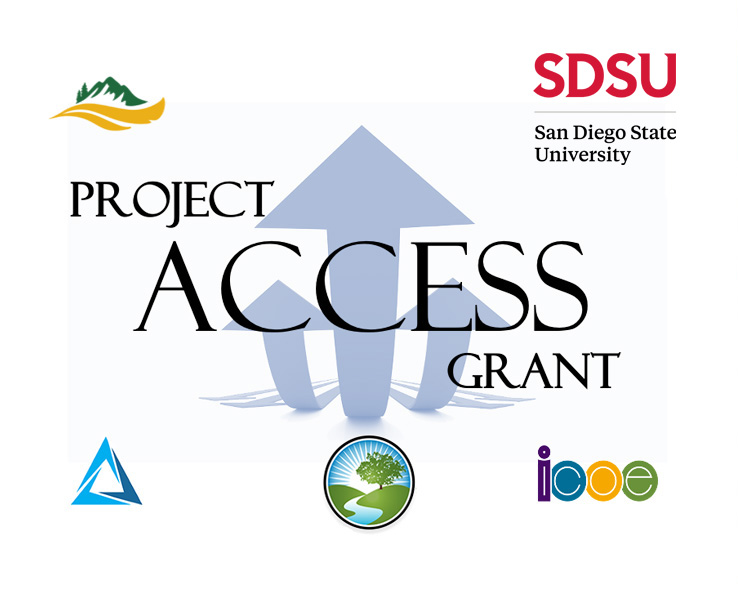
The Project ACCESS Grant is an opportunity to receive financial support, advising, and professional development while pursuing a teaching credential. Our partnered consortium facilitates your teacher pathway with online coursework, affordable tuition, and individualized support. Let us help you facilitate your teacher pathway!
Senate Bill 577 specified that the Commission on Teacher Credentialing, in coordination with the Chancellor of the California Community Colleges, may award up to three grants to collaboratives formed for the purpose of offering teacher credential coursework remotely in areas of the state with low rates of PK-12 credentialed public school teachers, at a participating community college or colleges.
With this pilot, FRC and the Dual Language and English Learner Education Department at SDSU will act as a “hub” that serves the entire state of California via partnerships with various county offices across the state to meet the needs of rural areas and areas of high needs such as bilingual education. The rationale for FRC to serve as the hub site is based on two key factors. First, DLE-FRC, in partnership with the Future Educator Support program, has been able to establish a statewide community-based partnership to form one of the nation’s top teacher credential programs and pathways and the first fully online bilingual credential program in the state of California. Second, there is a critical need for teachers in high-need subject areas that are difficult to fill, such as bilingual, STEM, and special education in the state of California after the passage of Proposition 58. As the demand for bilingual/dual-language programs continues to grow across the state of California, the number of teachers on Short-Term Staff Permit (STSP) and Provisional Intern Permit (PIP) credentials will increase unless programs are created to meet this growing need in rural, low socio-economic status (SES), and other high-need areas in California. FRC is already serving students in these areas of California through the partnership with SDSU, BCOE, and numerous county offices of education.
The consortium will focus on the expansion of the foundation already established through the fully online credential program by adapting the coursework and adding peer mentoring, professional development, and technology support to meet the unique needs of working adults from rural and other high-need areas.
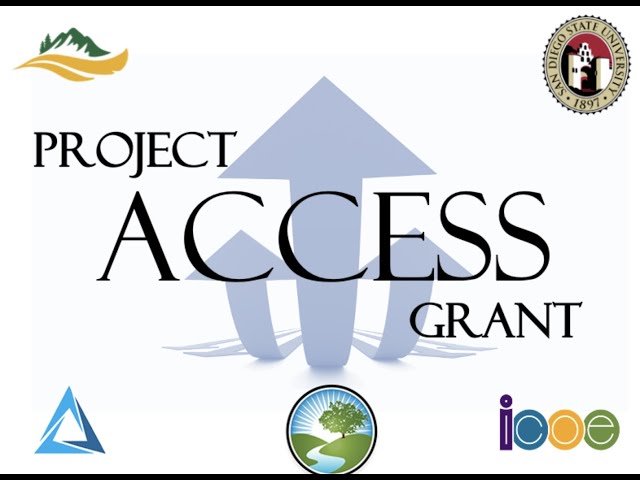
ACCESS is affiliated with the Department of Dual Language and English Learner Education at San Diego State University.
Announcements
No upcoming events.
Project Access Grant Program Offers
- Technology Pack (Computer & Wi-Fi Hotspot)
- Coursework
- Professional Development
- School Supplies (sticky notes, pen, highlighter, and a calendar/planner)
- Reimbursement up to $4,000
- Peer Mentoring and Advising
- Exam support for CBEST, CSET, RICA, Cal TPA
Grant Educational Online Course
- Online course through Feather River College
- Front-load pedagogy and content participants will see once they enter a credential program
- Students have the opportunity to implement what is learned through fieldwork and videos with instructor feedback
Reimbursement
- Tuition
- Books
- Exams
- School Parking Permit
- Credential Application Fees
Eligibility Requirements
- Currently, be the teacher of record in a K-12 classroom
- Possess a Bachelor’s Degree
- Apply to San Diego State University Online credential program to start Fall 2021
- Apply to Feather River College
- Be enrolled in courses at SDSU in either Summer 2021 OR Fall 2021
- Be enrolled in prerequisite courses at Feather River College
- Demonstrate financial need, as determined by the FAFSA Application
- Have a cumulative GPA of 2.75
- Maintain a grade of B or higher on all required courses
- Agree to at least two years of teaching in a high-need school after finishing the program
Documents Required
- A completed Project ACCESS Applicant form
- Unofficial transcript(s)
- Attach CBEST & CSET scores, if completed (This is not required for acceptance into the program)
- Personal statement (explaining the need for the scholarship and motivation for the desire to teach mathematics or science in a high-need school – two-page maximum)
- Two letters of recommendation indicating why the applicant is deserving of the scholarship
Next Steps
2. Attend Project ACCESS orientation or watch the recordinga. Orientation Date: January 22, 2021 @ 4:00 PM, Zoom: Link
3. Submit an application to San Diego State University.
How to Apply to a Credential Program @ SDSU
Bilingual Credential Admissions
4. Submit an application to Feather River College a. Complete the three steps outline in the informational slides.
Supportive Collaborating Community Organizations
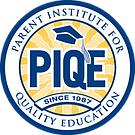

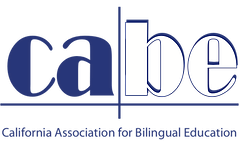
Our Team and Research
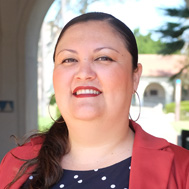
Dr. Melissa A. Navarro Martell (ella/she/her(s)) earned her Ph.D. in Education with a specialization in K-12 education and equity from the Joint Ph.D. Program in Education between San Diego State University and Claremont Graduate School in 2018. Prior to joining SDSU, she was an assistant professor in liberal studies at CSU Dominguez Hills. Her research and teaching center the need to prepare critically conscious bilingual educators on the sociopolitical, ideological, cultural, and linguistic aspects of teacher preparation in general, and K-8 equitable science and dual-language education specifically; pushing the need to decolonize science education.
Dr. Navarro Martell is a Whisenton Scholar, a partnership between the Whisenton Public Scholars program and the Kettering Foundation that encourages scholars to tryout elements of citizen-centered democracy in the context of teaching, research, and service. In addition, she was recently selected to be a scholar for the Quantitative Research Methods for STEM Education Program, an NSF-funded project offered by the University of Maryland, College Park, aimed at building capacity in STEM Education research. She has been a member of the Research & Equity Scholarship Institute (RESISTE) team at SDSU since 2016
Her experiences as an immigrant 6th grade student from Tijuana, México, inspired her path as an educator who understands bilingual learners. Dra. Navarro Martell is a former 4th and 8th grade social-justice math and science Spanish/English dual-language teacher.
Publications
Navarro Martell, M. A. (2018). A critical examination of dual-language science educators: Ideology, pedagogy, access, and equity (Order No. 10935250). Available from ProQuest Dissertations & Theses A&I; ProQuest Dissertations & Theses Global: The Humanities and Social Sciences Collection. (2113534941). Retrieved from http://libproxy.csudh.edu/
Navarro Martell, M.A. (2021) Ciencias bilingües: How Dual Language Teachers Cultivate Equity in Dual Language Classrooms. International Journal of Bilingual Education and Bilingualism. https://doi.org/10.1080/
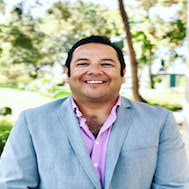
Guillermo Castillo is Senior Director at Butte County Office of Education and Coordinator/Lecturer at San Diego State University. He teaches courses at Feather River Community College and Mendocino Community College in the area of education. He has an Masters in Cross Cultural Education, Administrative Credential and Teaching Credential from Point Loma Nazarene University and National University. His undergraduate work is from California State University, San Bernardino. During his graduate work, he focused his research on the benefits of dual language programs. Prior to his appointment to Senior Director in July 2016, he was Associate Director for California Mini-Corps program in Sacramento. He also served as Coordinator of California Mini-Corps at San Diego State University and California State University, San Marcos. His career began as a middle school teacher in South San Diego where he taught social studies. Throughout his k-12 tenure as a teacher, he taught at all levels. He had the opportunity to teach high school, third grade and kindergarten at a Spanish immersion elementary school.
The youngest of four siblings and an immigrant from Tijuana, Baja California Mexico, Guillermo Castillo was the first in his family to graduate from college and understands the challenges faced by second language learners. His worked has centered around teacher pathways, identifying gatekeepers and other institutional mechanism which become barriers for those aspiring to become educators. He has established multiple partnerships with Universities, Community Colleges, County Offices, Districts and Charters to address the teacher shortage in all areas but with a specific focus on bilingual teachers.
Publications
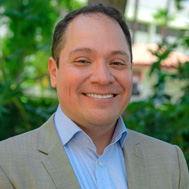
Dr. Alberto Esquinca is an Associate Professor in the Department of Dual Language and English Learner Education. Esquinca investigates: (a) language use and language learning in the context of STEM, (b) bi- and multiliterate identities, and (c) transnational, transborder/transfronterizx student experiences.
Publications
Esquinca, A., de la Piedra, M., & Herrera-Rocha, L.* (Conditional Acceptance). Engineering design in dual language: Teachers leveraging biliteracy to develop engineering disciplinary literacies
Araujo, B., de la Piedra & Esquinca, A. (Accepted). Translanguaging in Bilingual Teacher Preparation Courses: Conversations with Teacher Educators. Issues in Teacher Education.
de la Piedra, M., & Esquinca, A. (Accepted). Translanguaging and other forms of capital in DL education: Lessons from la frontera. In Transformative Translanguaging Espacios in Bilingual Education – US Latinx Bilingual Children Rompiendo Fronteras. M.T. Sánchez & O. García [Eds.]
Esquinca, A. & Herrera-Rocha, L.* Engineering Design in Dual Language Classroom. (Accepted). The literacies of design: Studies of equity and imagination with engineering and making. In The Literacies of Design: Studies of Equity and Imagination in Engineering and Making.
Esquinca, A. & Mejía, A. (In review). Latinx Engineering Students Designing Professional Identities: A Critical Multimodal Analysis
Wilson-Lopez, A., Tucker-Raymond, E., Esquinca, A. & Mejía, J.A. (In review). The literacies of design: Studies of equity and imagination with engineering and making. In The Literacies of Design: Studies of Equity and Imagination in Engineering and Making.
Di Stefano, M., Villanueva, I. & Esquinca, A. (Accepted). Reconceptualizing bilingual/dual-language teacher education to promote disciplinary biliteracies in STEM. Innovative Curricular and Pedagogical Designs in Bilingual Teacher Education: Bridging the Distance with P-12 Contexts. (working title). Aquino-Sterling, C.R., Gort, M and Bustos-Flores, B. (Eds.)
Mein, E., Esquinca, A., Villa, E.Q., & Monarrez, A. (2021). The affordances and constraints of social networks among latina engineering students. In Women of Color In STEM: Navigating the Double Bind in Higher Education B. Irby, N., Abdelrahman, B. Polnick & J. Ballenger [Eds.]
Mein, E., Esquinca, A., Monárrez, A., & Saldaña, C. (2020). Building a pathway to engineering: The influence of family and teachers among Mexican-origin undergraduate engineering students. Journal of Hispanic Higher Education, 19(1), 37-51. https://doi.org/10.1177/1538192718772082
Villa, E., Esquinca, A., Hampton, E., & Muciño, H. (2020). "Is engineering for me?": Examining Latinas’ narratives of resilience and agency to confront enduring struggles and challenges in undergraduate engineering studies. Journal of Peace Psychology, 26(4), 403-413. 27% acceptance rate; Journal impact factor: 2.00
Esquinca, A. & Herrera-Rocha, L.* (2019). Latinx Persistence in and Beyond the Degree: Intersections of Gender and Ethnicity. Proceedings of the American Society of Engineering Education. Tampa, FL.
Mejía, J.A., Ruiz, D.,* Popov, V. Esquinca, A., & Gadbois, D.* (2019). Asset-Based Practices in Engineering Design (APRENDE): Development of a Funds of Knowledge Approach for the Formation of Engineers. Proceedings of the American Society of Engineering Education. Tampa, FL.
de la Piedra, M., Araujo, B, & Esquinca, A. (2018). Educating Across Borders: The Case of a Dual Language Program on the US-Mexico Border. University of Arizona Press.
Esquinca, A., de la Piedra, M., & Herrera-Rocha, L.* (2018). Hegemonic Language Practices in Engineering Design and Dual Language Education. AMAE Journal, 12(2), 44-68. doi:http://dx.doi.org/10.24974/amae.12.2.394. 19-30% acceptance rate
Esquinca, A., & Villa, E. Q. (2018). “You are leaders”: Mentoring Latino/a college students to act and talk like engineers. In T. T. Yuen, E. Bonner, & M. G. Arreguí (Eds.), (Under)Represented Latin@s in STEM: Increasing Participation Through Education and the Workplace (p. 207-217). New York, NY: Peter Lang Publishing.
Esquinca, A., Mein, E., Villa, E., & Monárrez, A.* (2017). Academic biliteracy in college: borderland undergraduate engineering students’ mobilization of semiotic resources. In D. Palfreyman and van der Walt, C. (Eds.). Academic biliteracies: Multilingual repertoires in higher education, (pp. 41-56). Clevedon, UK: Multilingual Matters.
Mein, E., & Esquinca, A. (2017). The role of bilingualism in shaping engineering literacies and identities. Theory into Practice, 56(4). 5% acceptance rate.
Villa, E., Wandermurem, L.*, Hampton, E., & Esquinca, A. (2016). Engineering Education through the Latina Lens. Journal of Education and Learning, 5(4). Google-based impact factor (2017): 2. 87.
Esquinca, A. & Monárrez, A.* (2016). “They never taught us that”: Access to mathematics discourse practices among pre-engineering college students. Wood, M. B., Turner, E. E., Civil, M., & Eli, J. A. (Eds.). (2016). Proceedings of the 38th annual meeting of the North American Chapter of the International Group for the Psychology of Mathematics Education. Tucson, AZ: The University of Arizona.
Esquinca, A., Villa, E., G., Hampton, E., Ceberio, M. & Wandermurem, L.* (2015). Latinas’ resilience and persistence in computer science and engineering: Preliminary findings of a qualitative study examining identity and agency. In Frontiers in Education Conference Proceedings (FIE), 2015 IEEE.
Esquinca, A., Araujo, B., & de la Piedra, M. (2014). Meaning making and translanguaging in a two-way dual-language program on the U.S.-Mexico border. Bilingual Research Journal, 37, 164–181. doi: 10.1080/15235882.2014.934970. 18% acceptance rate.
Mein, E., & Esquinca, A. (2014). Bilingualism as a resource in learning engineering on the U.S.–Mexico border. Action in Teacher Education, 36, 247-260. doi: 10.1080/01626620.2014.917366. 15-20% acceptance rate.
Esquinca, A., Mein, E., Villa, E., & Monárrez, A.* (2014). Bilingualism as a meaning-making resource for learning engineering. Proceedings of the IEEE Frontiers in Education Conference (FIE), p. 736-740.
Esquinca, A. (2013). Transfronteriza pre-service teachers managing, resisting and coping with the demands of mathematical discourse. International Journal of Qualitative Studies in Education, 26(3), 279-300. doi: 10.1080/09518398.2012.762474. 15% acceptance rate.
Lesser, L. M., Wagler, A., & Esquinca, A. (2013). Survey of native English speakers and Spanish-speaking English language learners in tertiary introductory statistics. Statistics Education Research Journal. 10% acceptance rate.
Esquinca, A. (2012). Tranfronterizos’ socialization into mathematical discourse: Capitalizing on language and cultural resources or caught between conflicting ideologies? International Journal of Bilingual Education and Bilingualism, 15(6), 669-686. doi: 10.1080/13670050.2012.699947. 30% acceptance rate.
Esquinca, A. (2012). The interplay between biliteracy and multimodality in the socialization experiences of pre-service teachers developing mathematical discourse. Multilingual Education 2(4), 1-20. doi: 10.1186/2191-5059-2-4. 50% acceptance rate.
Esquinca, A., Villa, E., & Gándara, G. (2012). Supporting Latino and English language learners’ written Communication Skills. Proceedings of the IEEE Frontiers in Education Conference (FIE).
Esquinca, A. (2011). Bilingual college writers’ collaborative writing of word problems Linguistics and Education, 22(2), 150-167. doi: 10.1016/j.linged.2010.12.006. 21% acceptance rate.
Esquinca, A. & Kosheleva, O. (2011). A Case Study of Pre-Service Teachers Writing Mathematics for Teaching in a Second Language, In: L.R. Wiest and T.D. Lamberg (Eds.). Proceedings of the 33rd Annual Conference of the North American Chapter of the International Group for the Psychology of Mathematics Education PME-NA '2011, Reno, Nevada, October 20-23, 2011, pp. 1382-1390.
Esquinca, A. (2011). Prefacio. In A. Muro, F. Tedeschi, P. Arnal, L. Jaurrierta & M. Laveaga (Eds.), Raíces: Libro de preparación para el GED y estudios secundarios.
Esquinca, A., Delgado, E.*, Sekerci, L.*, & Rodríguez, G. (2010). Escribiendo danza folklórica mexicana: Resultados de un proyecto de investigación-acción de prácticas de la danza. Revista Interamericana de Educación de Adultos, 32(1), 80-97. 50% acceptance rate.
Esquinca, A. (2008). Biography of Ralph Yarborough. In J. Gonzalez (Ed.), Encyclopedia of bilingual education. Thousand Oaks, CA: SAGE.
Esquinca, A. (2008). Biography of Armando Rodriguez. In J. Gonzalez (Ed.), Encyclopedia of bilingual education. Thousand Oaks, CA: SAGE.
Esquinca, A. Yaden, D. & Rueda, R. (2005). Current language proficiency assessments and their implications for preschool, English language learners. In Cohen, J., McAlister, K., Rolstad, K., & MacSwan, J. (Eds.). ISB4: Proceedings of the 4th International Symposium on Bilingualism. Somerville, MA: Cascadilla Press.
Yaden, D., Rueda, R., Tsai, T., & Esquinca, A. (2004) Issues in early childhood education for English learners: Language proficiency assessment, professional development, and the outcomes of early literacy intervention. In O. Saracho and B. Spodek (Eds.) Contemporary perspectives on language policy and literacy instruction in early childhood education (p. 215- 242). Charlotte, NC: Information Age Publishing.
Amastae, J., Dajlala, B., Diaz, X., Esquinca, A., Ochoa, S., Porter, P., et al. (1998). ∅ hablo: El uso del sujeto en el español fronterizo. In Morúa Leyva, M.C. & López Cruz, G. (Eds.) Memorias del V Encuentro Internacional de Lingüística en el Noroeste. Hermosillo, México: Universidad de Sonora.
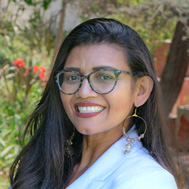
Dr. Margarita Machado-Casas is a professor in the Department of Dual Language and English Learner Education. Machado-Casas investigates: (a) family and community multiliteracies, (b) migration and immigration, (c) bilingual teacher education, (d) technology in educational spaces and (d) assessment and evaluation.
Refereed Publications
Journal Articles
2020
Espinoza, K., Machado-Casas, M., Martinez-Suarez, A. (2020) Disruption
Through Concientización: Using a Three Tier Approach to Family Engagement Through a VERDAD Framework In Keengwe, S., & Onchwari, G. (Eds)., (2020). Handbook of Research on Bridging Family-Teacher Relationships for ELL and Immigrant Students. Pennsylvania: IGI Global (Accepted for publication).
Garza, E., Espinoza, K., Machado-Casas, M., Schouten, B., Guerra, M. J. (2020). Highly effective practices of three bilingual teacher preparation programs in US Hispanic Serving Institutions (HSIs). Ehquidad International Welfare Policies and Social Work Journal, 14(2), 95-128.
Pour-Khorshid, F., Machado-Casas, M., Talati, K., Gomez, D., Castillo, G. (2020). Engaging in Testimonio as a walk through el laberinto (the labyrinth) of higher education: Releasing, receiving and returning to the field with deeper purpose. La Revista Tequio de la Uabjo. 3(9), 25-48.
Machado-Casas, M., Talati, K., Baron, Ana. (2020) STEM Access for Latina bilingual teacher candidates: Discrimination en la educación. How do informal programs motivate women to pursue STEM related fields. La Revista Tequio de la Uabjo, 3(9), 9-22
2019
Pour-Khorshid, F., Machado-Casas, M., Talati, K., Gomez, D., Castillo, G. (2020). Engaging in Testimonio as a walk through el laberinto (the labyrinth) of higher education: Releasing, receiving and returning to the field with deeper purpose. La Revista Tequio de la Uabjo. 3(9), 25-48.
Maldonado, S. I., & Machado-Casas, M. (2019). Sustaining the sociopolitical spirit of bilingual education: Assessment practices and evaluative policies for students minoritized by national background and English-language proficiency. In S. Keengwe & G. Onchwari (Eds.) Handbook of research on assessment practices and pedagogical models for immigrant students (pp. 1-17). Hershey, PA: IGI Global.
2017
Pérez-de-Guzmán , V., Rodríguez-Díez , J. L., Machado-Casas, M. (2017). Analysis of active aging through cineforum: an educational experience: Análisis del envejecimiento activo a través del cineforum: una experiencia educative. Revista de Humanidades. 31(5), 1-35.
Machado-Casas, M., Alanis, I., Ruiz, E. (2017). La Technología Como Inclusió Educativa de la Diversidad CulturalL Transformando Prácticas Informales de Educación en los Estados Unidos. Pedagogía Social. Revista Interuniversitaria, 29(3), 1-12. (Journal is produced in three different languages)
- Machado-Casas, M., Alanis, I., Ruiz, E. (2017/Translated). Innovative Technologies as Social Pedagogy: Transforming Informal Educational Practices in the United States. Pedagogía Social. Revista Interuniversitaria, 29(3), 1-12.
Machado-Casas, M., Cabellos, Sergio, A., Talati-Espinoza, K., Abdul-Razaq, H. (2017).
Working with Immigrant and Refugee Families: Broadening Cross-Cultural Understanding with Immigrant/Refugee Families. Revista Foro de Educación. 21(2), 1-15.
Machado-Casas, M., Talati, K., Abdul-Razaq, H., Martinez-Suarez, A., Fonseca, M., Peña, C. (2017). Pedagogies of Puppetry: Marginalization, Hegemony and colonized treatment of Latino/Indigenous Families. Revista Ehquidad. 7(1), 11-42.
In Progress
Machado-Casas, M., Alanis, I., Ruiz, E. (In Progress/Tranlation of original published article). A Tecnologia como inclusão educative da diversidade cultural: Transformado Practicas Informais de Educacão nos estados unidos. Pedagogía Social. Revista Interuniversitaria.
Flores, B. B., Machado-Casas, M., Claeys, L. & Solis, J. (In press). Promising learning and instructional practices for culturally diverse practicing teachers: The case of Nepohualtzitzin Ethnomathematics Club (NEC). Revista Barceo. 18(3), 145-160.
Machado-Casas, M., Cabello, S.A., Miranda, J.M. (In Press). Crisis, Familia y Escuela: La Precarización de la Vida. Revista de Educación y Humanismo. 10(2), 1-39. Colombia.
Machado-Casas, M., Cabello, S.A. (In Press). Subjetividad en las trayectoria educativas en inmigrants Latinos en Estados Unidos y España. Revista de Pedagogia Social. Spain.
Pérez-de-Guzmán, V., Rodríguez-Díez, J.L. & Machado-Casas, M. (2015). Education and active aging: preparation for finitude. An educational experience. Pedagogía Social, 23(2), 25-46. Spain.
Abdul-Razaq, H., Machado-Casas, M. (In Progress). Newly Arrived Refugees: Challenges and Hope when Engaging the School Systems.
Machado-Casas, M., Lindahl, K. (In Progress). FAMTECH: Sociocultural Approaches to Digital Learning for L2 families.
Abdul-Razaq, H., Machado-Casas, M. (In Progress). Newly Arrived Refugees: Shifting the Paradigm of Parent Involvement.
Solis, J., & Machado-Casas, M. (In Progress). Agency and Transcultural Citizenship for Pre-Service Teachers in STEM through Ethnomathematics NEPO club.
2016
Prieto, L., Yuen, T., Arreguí-Anderson, M., Machado-Casas, M., Sánchez, P., & Ek, L. (2016). Four Cases of a Sociocultural Approach to Mobile Learning in La Clase Mágica, an Afterschool Technology Club. Interactive Learning Environments Journal, 24(2), 345-356.
Cervantes, M., Cabello, S.A., Machado-Casas, M. (2016). From Corridos to Hip Hop: Integrating music in Mexican American Studies Courses. Revista de la Sociedad Comparada de Educación Comparada. 84(3), 2-15.
Machado-Casas, M., Smith, H., Pourkhorshid, F., Cabello, S.A. (2016).
Language as Problem, Right, Resource and Resistance: The Realities of Nicaragua’s Multilingual Atlantic Coast. Revista Barceo. 171(2), 133-146.
Machado-Casas, M., Cabello, S.A. (2016). Discursos sobre las trayectorias en educación universitaria de primeras y segundas generaciones de inmigrantes en estados unidos. Revista de la Sociedad Comparada de Educación Comparada. 84(3), 20-45.
2015
Machado-Casas, M., Flores, B. & Guzman Puya, M. (2015). Global Education. Journal of Latinos in Education, Special Issue, 14(1), 1-29.
Machado-Casas, M. & Alanis, I. (2015). La tecnología como inclusión educativa de la diversidad cultural: Transformando practicas informales de educación en los estados unidos. Diversidad Cultural e inclusión socioeducativa Journal, 5(1), 45-60. Spain.
Machado-Casas, M., & Flores, B. B. (2015). Engaging Latino Families in Technology: Transforming and Empowering Home Pedagogy and Practices. Psychology, Knowledge and Society. Psychologia, Conocimiento y Sociedad Journal, 4(2), 89-108.
2014
Machado-Casas, M., Alanis, I., & Ruiz, E. (2014). Beyond the technical apparatus: Identity, connections, and the use of “Autonarrativas virtuales” (virtual autonarratives). NABE Journal of Research and Practice. 5(1), 1-29.
Machado-Casas, M. (2014). Supervivencia y trascendencia de inmigrantes Latinos indígenas transnacionales (ILIS) en los estados unidos. Pedagogía Social. 23(1), 12-36.
Machado-Casas, M., Ek. L., & Sanchez, P. (2014). The Digital Literacy Practices of Latina/o Immigrant Parents in an After-school Technology Partnership. Multicultural Education Journal. 21(3/4), 28-33.
2013
Ruiz, E., Machado-Casas, M. (2013). An Academic Community of Hermandad: Research for the Educational Advancement of Latin@s (REAL), a Motivating Factor for First-Tier Tenure-Track Latina Faculty. Educational Foundations. Winter/Spring, 27(1-2), 49-63
Machado-Casas, M., Ruiz, E., Cantu, N. E. (2013). Women of color faculty testimonios and laberintos: Validating spaces for women of color faculty in higher education: Introduction to the special issue. Educational Foundations, Winter/Spring, 27(1-2), 3-16.
2012
Machado-Casas, M. (2012). Pedagogía del camaleón / Pedagogies of the chameleon: Strategies of survival and identity for transnational indigenous Latino immigrants in the US south. The Urban Review, 44(5).
http://link.springer.com/article/10.1007/s11256-012-0206-5
Machado-Casas, M. (2012). Globalized students vs. Unglobalized families: Limiting family participation in education. The Association of Mexican-American Educators Journal (AMAE), 6(3).
http://amaejournal.asu.edu/index.php/amae/issue/current
Urrieta, L., Machado-Casas, M. (2012). Book banning, censorship, and ethnic studies in urban schools. The Urban Review, 45(1).
http://rd.springer.com/article/10.1007/s11256-012-0221-6
2010
Ek, L.D., Machado-Casas, M., Sánchez, P., & Alanis, I. (2010). Crossing cultural borders: La Clase Mágica as a university-school partnership. Journal of School Leadership, 20(6), 820-849. [CABELL’S ACCEPTANCE RATE: 6-10%]
2009
Machado-Casas, M. (2009). The new global transnational citizen: The role multilingualism in the lives of Latino/s indigenous immigrants in the U.S. CIMEXUS: Revista de Investigaciones México Estados Unidos, 2(7), 99-123.
Sánchez, P. & Machado-Casas, M. (2009). Introduction: At the intersection of transnationalism, Latino youth, and education. High School Journal, 92(4), 3-15.
Machado-Casas, M. (2009). La Supervivencia indígenas en E.U. por medio de la tecnología informática. DIDAC, 53. <Peer reviewed journal published by Universidad Ibero Americana, México>
Machado-Casas, M. (2009). The politics of organic phylogeny: The art of parenting and surviving as transnational multilingual Latino indigenous immigrants in the U.S. High School Journal, 92(4), 82-99.
2008
Machado-Casas, M. (2008). Multilingualism and the new global transnational citizen: Latino/s indigenous immigrants in North Carolina. NABE NEWS, 31(2), 3-15.
Machado-Casas, M. (2007). Arts in the Classroom: La llave (the key) to awareness, community relations, and parental involvement. The Journal of Thought, Winter 2007.
Books
Machado-Casas, M., Flores, B., Maldonado, S. (Forthcoming). Evaluating Bilingual Education Programs: Assessing Students Bilingualism, Biliteracy, and Social Cultural Competence. In Medina, Y. (Eds.) Critical Issues in Latino Education. NY: Peter Lang, Inc.
Pérez de Guzmán, V., Bas-Peña, E., and Machado-Casas, M. (2019). Gender Issues in Latin America and Spain: Multidisciplinary Perspectives. In Machado-Casas, M., Medina, Y. (Eds.) Critical Issues in Latino Education. NY: Peter Lang, Inc.
Guest Editorships
Machado-Casas, M., Flores, B., Guzman-Puya, M.V. (2015). Global Education: Connecting Research, Practice, and Community through GLOBAL LEAD. Journal of Latinos in Education, Special Issue. 14(1), 1-29.
Machado-Casas, M., Ruiz, E., Cantu, N. E. (2013). Guest Editors. Women of color faculty. Testimonios and laberintos: Validating spaces for women of color faculty in higher education: Introduction to the special issue. Educational Foundations. Winter/Spring, 27(1-2).
Urrieta, L., Machado-Casas, M. (2012). Guest Editors. Special Issue: Book Banning, Censorship, and Ethnic Studies in Urban Schools. The Urban Review.
Sánchez, P. & Machado-Casas, M. (2009). Guest Editors. Special Issue: At the intersection of transnationalism, Latino youth, and education. High School Journal, 92(4).
Edited Books
2020
Murillo Jr, E. G., Delgado- Bernal, D., Morales, S., Urrieta, L., Bybee, E., Munoz, J., Saenz, V., Machado-Casas, M., Espinoza, K. (Eds.). (In preparation). V2 Handbook of Latinos and education: Theory, research, and practice. Routledge.
2009
Murrillo, E., Villenas, S., Trinidad Galvan, R., Sánchez Muñoz, J., Martínez, C. & Machado-Casas, M., (2009). Handbook of Latinos in Education: Theory, Research, and Practice. NY: Routledge, Taylor and Francis, Inc.
Edited Books in Progress
Groves, P., Oviawe, J. O. & Machado-Casas, M. (In Progress) The Oxford Encyclopedia of Race and Education. London: Oxford Press.
Series Editorship
2020
Abín Noboa Ríos (2020) 21st Century America. Where are we? In Machado-Casas, M., Medina, Y. (Eds.) Critical Issues in Latino Education. NY: Peter Lang, Inc.
Gallard, A., Pitts, W., Flores, B., Ramos-de-Robles, S.L., (2020). Latina Pathways to Success in Science: Exploring Contextual Mitigating Factors as a Form of Resiliency. In Machado-Casas, M., Medina, Y. (Eds.) Critical Issues in Latino Education. NY: Peter Lang, Inc.
2019
Pérez de Guzmán, V., Bas-Peña, E., and Machado-Casas, M. Gender Issues in Latin America and Spain: Multidisciplinary Perspectives. In Machado-Casas, M., Medina, Y. (Eds.) Critical Issues in Latino Education. NY: Peter Lang, Inc.
2018
Yuen, T., Bonner, E., Arreguín-Anderson, M. (2018). (Under)Represented Latin@s in STEM: Increasing Participation Throughout Education and Workplace. In Machado-Casas, M., Medina, Y. (Eds.) Critical Issues in Latino Education. NY: Peter Lang, Inc.
2017
Ayala, J., Cammarota, J., Rivera, M., Rodriguez, L.F., Berta-Avial, M., Torre, M. (In Press). PAR Entremundos: A Pedagogy of Las Americas. In Machado-Casas, M., Medina, Y. (Eds.) Critical Issues in Latino Education. NY: Peter Lang, Inc.
Flores, B. B., Riojas Clark, E. (In Press). Despertando el Ser: Latin@ Teachers Discovery and Affirmation of Self Through Identity, Consciousness, and Belief Exploration. In Machado-Casas, M., Medina, Y. (Eds.) Critical Issues in Latino Education. NY: Peter Lang, Inc.
2016
Guerra, N. (2016). Addressing Challenges Latino/as Encounter with the LIBRE Problem Solving Model. In Machado-Casas, M., Medina, Y. (Eds.) Critical Issues in Latino Education. NY: Peter Lang, Inc.
Rodriguez, L.F. (2015). Intentional Excellence: The Pedagogy, Power, and Politics of Excellence in Latina/o Schools and Communities (Peter Lang Publishing). In Machado-Casas, M., Medina, Y. (Eds.) Critical Issues in Latino Education. NY: Peter Lang, Inc.
Series Editorship in Progress
Machado-Casas, M., Maldonado, S., Flores, B. (In Progress). Evaluating bilingual education programs: Assessing students’ bilingualism, biliteracy and sociocultural competence. In Machado- Casas, M., Medina, Y. (Eds.) Critical Issues in Latino Education. NY: Peter Lang, Inc.
Cervantes, M., Saldaña, L. (In Progress). El Sur en el Norte: Decolonizing Education through Critical Readings of Chicanx and Latinx Music. In Machado- Casas, M., Medina, Y. (Eds.) Critical Issues in Latino Education. NY: Peter Lang, Inc.
Castañeda, M. & Krupezynsk, J. (In Progress). Civic Engagement in Diverse Latina/o Communities: Learning from Social Justice Partnerships in Action. In Machado- Casas, M., Medina, Y. (Eds.) Critical Issues in Latino Education. NY: Peter Lang, Inc.
Ek, L. Machado-Casas, M., Alanis, I., & Sánchez, P. (In Progress). Un Lugar Sin Igual (An unrivaled Space). Digital Biliteracies in a Latinx Community. In Machado- Casas, M., Medina, Y. (Eds.) Critical Issues in Latino Education. NY: Peter Lang, Inc.
Zamora, G., Ramirez, G., & Sánchez, P. (In Progress). In Machado-Casas, M., Medina,
- (Eds.) Critical Issues in Latino Education. NY: Peter Lang, Inc.
Sadlier, S. (In Press). Movements on the Streets and in Schools. In Machado-Casas, M.,
Medina, Y. (Eds.) Critical Issues in Latino Education. NY: Peter Lang, Inc.
Smith, H., Combs, M.C. & DeLa Viña, D. (In Progess). A Commemorative Anthropology in Memory of Dr. Richard Ruiz. In Machado-Casas, M., Medina, Y. (Eds.) Critical Issues in Latino Education. NY: Peter Lang, Inc.
Arreguin-Anderson, M., & Alanis, E. (In Progress). Translingual Partners in Early Childhood Elementary Education: Pedagogies in Linguistic and Cognitive Engagement. In Machado-Casas, M., Medina, Y. (Eds.) Critical Issues in Latino Education. NY: Peter Lang, Inc.
Book Chapters
2016
Pourkhorshid, F., Machado-Casas, M. (2016). The Benefits to Bilingual Education. In Ramirez, L. Et Al. No Estas Solo:Recetas para Obtener el EXITO de Padres a Padres. Vasquez Press, CA.
2015
Machado-Casas, M., Flores, B. B., & Murillo, E. (2015). Reframing: We Are Not Public Intellectuals; We Are Movement Intellectuals. In C. Gestl-Pepin & C. Reyes, Reclaiming the Public Dialogue in Education: Putting the Public in Public Intellectual (pp. 31-38). NY: Peter Lang Publishers.
2013
Machado-Casas, M. (2013). El Mundo en la Palma de la Mano [The World in the Palm of the Hand]: Bridging Families’ Multigenerational Technology Gaps though La Clase Magica. In Flores, B.B., Vaquez, O.A., & Clark, E.R. (In press). La Clase Mágica: Generating Transworld Pedagogy. Lexington Publishers, Rowman Littlefield Publishing Group.
2011
Smith, H., Sánchez, P., Ek, L.D., & Machado-Casas, M. (2011). From linguistic imperialism to linguistic conscientización: Learning from heritage language speakers. In D. Schwarzer, M. Petrón, & C. Luke, (Eds.), Research informing practice – Practice informing research: Innovative teaching methodologies for world language teachers (pp. 177-198). Charlotte: Information Age Publishing, Inc.
Ek, L.D., Machado-Casas, M., Sánchez, P., Smith, H.L. (2011). Aprendiendo de sus comunidades / Learning from their communities: Bilingual teachers researching urban Latino neighborhoods. In V. Kinloch (Ed.), Urban Literacies: Critical Perspectives on Language, Learning, and Community (pp. 15-37). New York: Teachers College Press.
2010
Machado-Casas, M., & Flores, B. (2010). Trabajando y Comunicando con Nuestras Comunidades Indígenas Inmigrantes. In Flores, B., Clark, E., and Hernandez Sheets, R. (Eds.), Educar para Transformar: Teacher Preparation for Bilingual Student Populations (pp. 205-216). New York: Routledge, Taylor and Francis, Inc.
2008
Bettez, S., Lopez, J., & Machado-Casas, M., (2008). “Hermandad” (Sisterhood): Latinas in Higher Education. In Cleveland, D. (Ed.), When Minorities Are Especially Encouraged to Apply: Diversity and Affirmative Action in Higher Education (pp. 23-34). New York: Peter Lang Publishing Inc.
Encyclopedia Entries
Maldonado, S., Machado-Casas, M. (Acceted). Assessment and evaluation strategies for students minoritized by English-language background. In the Handbook of Research on Assessment Practices and Pedagogical Models for Immigrant Students.
Grooves, P. & Machado-Casas, M. (Associate Editors) .(In Progress). The Oxford Encyclopedia of Race and Education. NY: Routeledge, Taylor and Francis, Inc.
Alanis, I., Machado-Casas, M. (2017). Examining Bilingual Teacher Candidates use of Digital Media. In Sagini, K. et. Al. In The Handbook of Research on Pedagogies and Cultural Considerations for Young English Language Learners. NY: Routeledge, Taylor and Francis, Inc.
Machado-Casas, M. (2009). Resources and information for Latinos in education: Research, theory & practice. In Murrillo, E., Villenas, S., Trinidad Galván, R., Sánchez Muñoz, J., Martínez, C. & Machado-Casas, M. (Eds.). Handbook of Latinos in Education: Theory, Research, and Practice. NY: Routledge, Taylor and Francis, Inc.
Non-refereed Publications
Single Authored
Machado-Casas, M. Durham public schools and Latinos in education: Parent conversations about school perceptions. Durham Public Schools Parental Educational Link. May, 2006.
Machado-Casas, M. Now I’m part of this school: A conversation with a Latino parent. Durham Public Schools Parents Educational Link, January 2005.
Feather River College
Dean of Instruction/CIO
After receiving his B.A. in Geophysics from University of California, Berkeley, Derek was a consultant working digital mapping solutions for mining companies. After this work, Derek returned to school to pursue higher degrees at Stanford University where his research techniques focused on active-source crustal seismology and geochronology. Derek came to FRC in 2006 as a full-time faculty member in the Environmental Studies program and served the college as the division chair for the Professional and Technical Studies Division. Derek made the transition to his current role as Dean as Instruction /Chief Instructional Officer in 2011 and continues to serve the college in this role today.
Feather River College
Assistant Dean of Instruction

